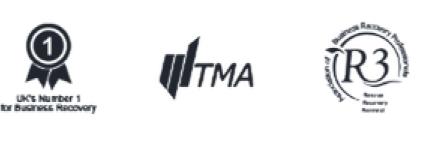Is my company solvent or insolvent?
A solvent company can pay all its debts when they’re due. If you have sufficient retained profits and assets to repay all your creditors in full, your company is solvent and you can close it via Members’ Voluntary Liquidation or Strike Off.
A company is classed as insolvent when its liabilities outweigh its assets, or when it can no longer meet its outgoings when they’re due. In terms of company closure, if your company cannot pay its creditors in full, you must close it via an insolvent liquidation.
How do I know if my company is insolvent?
There are three simple to help you determine whether your company is solvent or insolvent.
The cash flow test
Can your company pay its bills and contractual monthly repayments when they become due? If it can’t, it could be insolvent. For example, have you missed payments on a finance agreement or have tax bills you cannot pay? If you do, the likelihood is your business is insolvent.
The balance sheet test
Do your company’s liabilities exceed its assets? If the amount you owe creditors exceeds the value of your assets (including money you have in the bank), the business is in an insolvent position.
The legal action test
Are creditors taking legal action against you to force the repayment of debts? A creditor can issue you with a County Court Judgment (CCJ) or a Statutory Demand. The existence of these outstanding claims officially confirms the company’s inability to pay its debts and is a clear sign that it’s insolvent.
If your company fails any of the three tests, contact us immediately. We’ll determine the financial status of your company and help you close the business in the right way while protecting your creditors’ interests.
How do I close a solvent company?
There are two ways to close a solvent company. You can apply to remove it from the Companies House register, a process known as Voluntary Dissolution, or use a Members’ Voluntary Liquidation (MVL).
Voluntary Dissolution
Voluntary Dissolution or Strike Off is a process you can do yourself. As long as the company has not traded in the last three months and there are no outstanding creditor arrangements or ongoing legal action against it, you can apply to strike it off the official register of companies.
You can submit your application online and pay a small administrative fee. If your application is accepted and there are no objections, your company will be dissolved after around three months.
Members’ Voluntary Liquidation (MVL)
If your company is solvent and has valuable assets or retained profits to extract, a Members’ Voluntary Liquidation will usually be the most tax-efficient way to close it down. You must appoint an insolvency practitioner to act as the liquidator. They will ensure the company is solvent before valuing and selling its assets. They will repay any creditors before distributing the remaining funds among the shareholders.
The money you extract from the company using an MVL is subject to Capital Gains Tax rather than Income Tax. You may also be eligible for Business Asset Disposal Relief, which can reduce your tax liability to just 10%.
How do I close an insolvent company?
If your business is insolvent, you should cease trading immediately and seek advice from a licensed insolvency practitioner. They will advise you on how to close the business while acting in the best interests of your creditors.
Creditors’ Voluntary Liquidation (CVL)
A Creditors’ Voluntary Liquidation is the most common way to close an insolvent company. You initiate the process by contacting a licensed insolvency practitioner. They will act as the liquidator and manage the whole process. They’ll invite claims from your creditors and value and sell the business’s assets to repay the creditors as much as possible. They’ll then formally dissolve the company and any remaining debts will be written off.
A CVL can help to protect you from accusations of misconduct and wrongful trading, as you’re seen to be doing the right thing by acting to protect the interests of your creditors. You may also be eligible to claim director redundancy pay.
Compulsory Liquidation
Compulsory Liquidation is a process that’s forced on you by a disgruntled creditor, commonly HMRC. A creditor can issue you with a County Court Judgment (CCJ) or Statutory Demand to collect a debt. If you do not settle the debt or have it dismissed in court, they can then issue you with a Winding Up Petition and an order can be made by the court to close your company.
The court will appoint a liquidator who will investigate your conduct in the period leading up to the insolvency. If they uncover any issues, you could face adverse consequences, such as fines, liability for company debts and even disqualification from acting as a director.
Do you want to close your company?
Are you unsure whether your company is solvent or insolvent? Or perhaps you’re confused about the right company closure method in your situation? Call our specialist team on 0808 2532 014 for free advice or try our online consultation form.
Need to speak to someone?
With multiple offices across the UK and a vastly experienced team of business closure experts, you are never far away from the advice you need. Our Licensed insolvency practitioners provide free consultations to all directors and shareholders, and can quickly ascertain which closure method is best for your business.
We are licensed by recognised professional bodies and have helped thousands of directors over many years. Contact us today for your free company closure consultation.
Related Posts
25,000+ Company Directors Supported – Partner Led Service
At Company Closure we have a nationwide team of licensed insolvency practitioners and company closure experts here to help you understand your options. Whether your company is solvent or insolvent, there is a closure method out there to suit you.
Call our team of licensed insolvency practitioners today:




